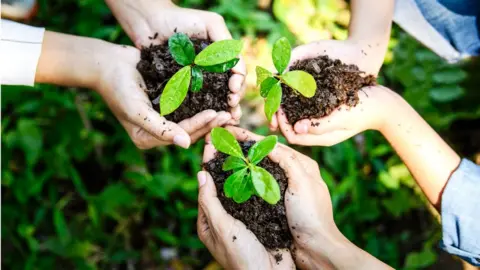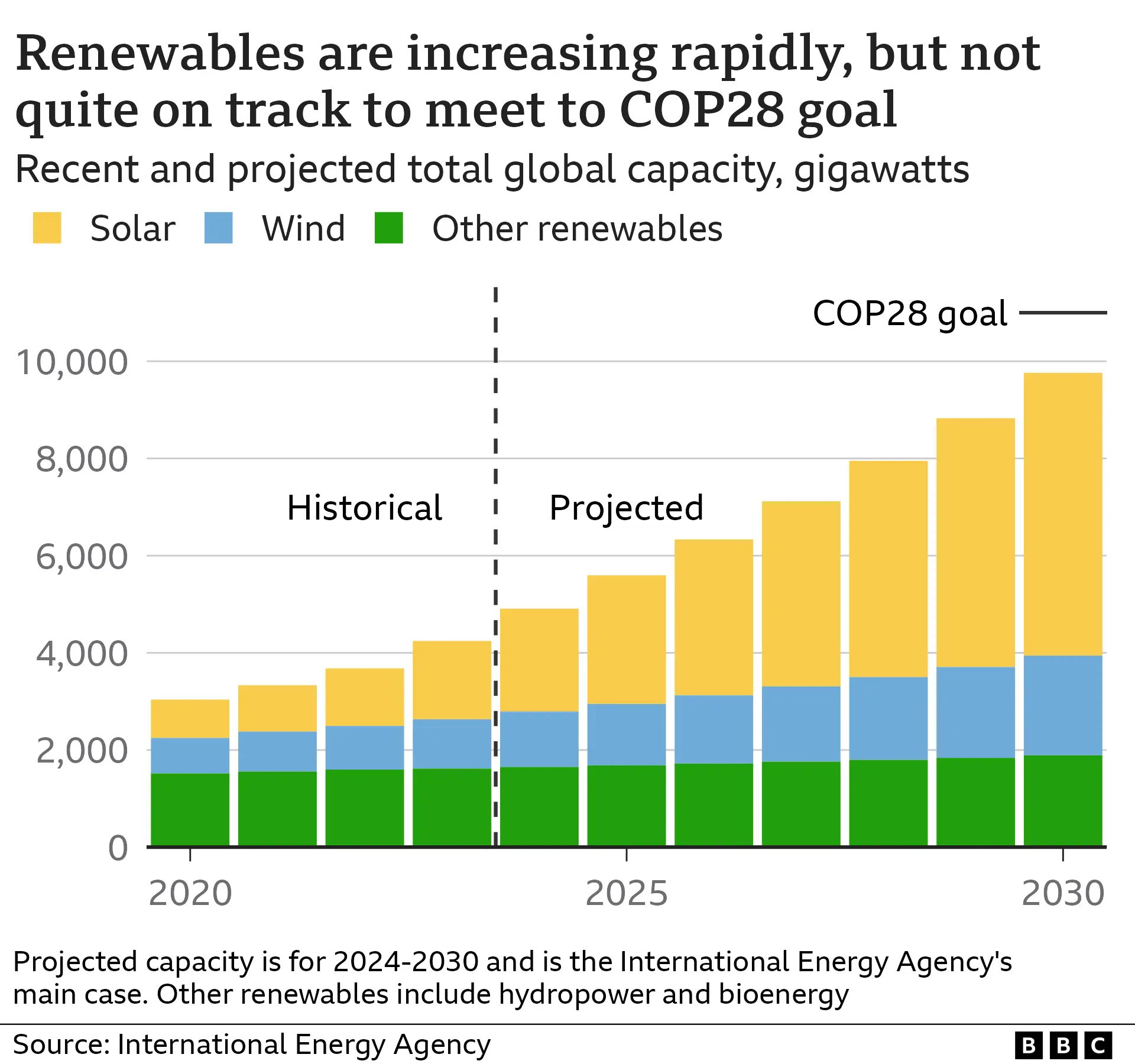What is Earth Day 2025, when is it and what has it achieved?
 Getty Images
Getty ImagesEvery year, millions of people across the globe gather to mark Earth Day and celebrate the environmental movement.
The event began in 1970 in the United States, and is now marked around the world.
What is Earth Day and when is it?
Earth Day is a global event which aims to highlight the importance of protecting the environment.
It takes place annually on 22 April.
It was set up in 1970 by Gaylord Nelson, a US senator and environmentalist, and Denis Hayes, a graduate student at Harvard University.
Both had growing concerns about environmental damage in the US, such as that caused by a large oil spill in 1969 in Santa Barbara, California.
They came up with Earth Day as a way to engage the public and push green issues to the national agenda.
 Getty Images
Getty ImagesThe first Earth Day saw 20 million people across the US take to the streets.
It became a global event in 1990, and now involves more than one billion people of all ages in nearly 200 countries, according to organisers.
"Celebrating Earth Day is often the first environmental action for a lot of people," said Earthday.org president, Kathleen Rogers.
What is happening for Earth Day 2025?
The official theme for 2025, "Our Power, Our Planet", focuses on renewable energy.
Previous events have covered a range of environmental issues, including climate change, plastic pollution and species protection.
This year, the organisers are calling for worldwide electricity generation from renewable sources - such as wind and solar - to triple by 2030.
This is similar to a pledge agreed at the COP28 global climate conference in 2023 to triple the capacity of renewables by 2030.
Renewables have been growing quickly, but are slightly off track to meet that promise, the International Energy Agency said in October.

Earth Day sees various local events take place in addition to the official theme, such as clean-ups of beaches, rivers and other spaces.
What has Earth Day achieved?
Within a few years of the first Earth Day in 1970, the US Environmental Protection Agency had been set up, and several environmental laws - such as the Clean Air Act - had been established or significantly strengthened.
More recent events have included planting hundreds of millions of trees, supporting farmers with sustainable agriculture practices, and starting climate literacy projects around the world.
Some observers also cite the importance of Earth Day in pushing environmental issues back up national and international agendas.
"With a host of issues driving our environmental challenges down society's priority list, events like Earth Day remind us of the long-term cost of short-termism," said Yvo de Boer, former UN climate chief.
In 2016, Earth Day was symbolically chosen for the official signing of the landmark Paris climate accord, which had been agreed in late 2015.
It was the first time that countries of the world had collectively agreed targets to try to limit global warming.
What do critics say about Earth Day?
Some critics warn that these achievements give a false sense of progress.
Many environmental indicators - from global temperatures to species extinctions - are changing rapidly due to human activities. Efforts to date have fallen far short of halting or reversing these trends.
Some individuals and companies have also been accused of using Earth Day as an opportunity to misleadingly promote their environmental credentials, without making the real changes that are needed.
This is known as "greenwashing".
For example, campaigner Greta Thunberg posted in 2022 that Earth Day "has turned into an opportunity for people in power to post their 'love' for the planet, while at the same time destroying it at maximum speed".
"We all know greenwashing is happening and it is infuriating," Earth Day organiser Ms Rogers told BBC News.
"It's not an issue we've caused, but we know Earth Day is used cynically by some businesses to [mis]use the ethos of sustainability for their own gain."
"Governments need to take robust action and crack down on any business or industry lying to consumers."
